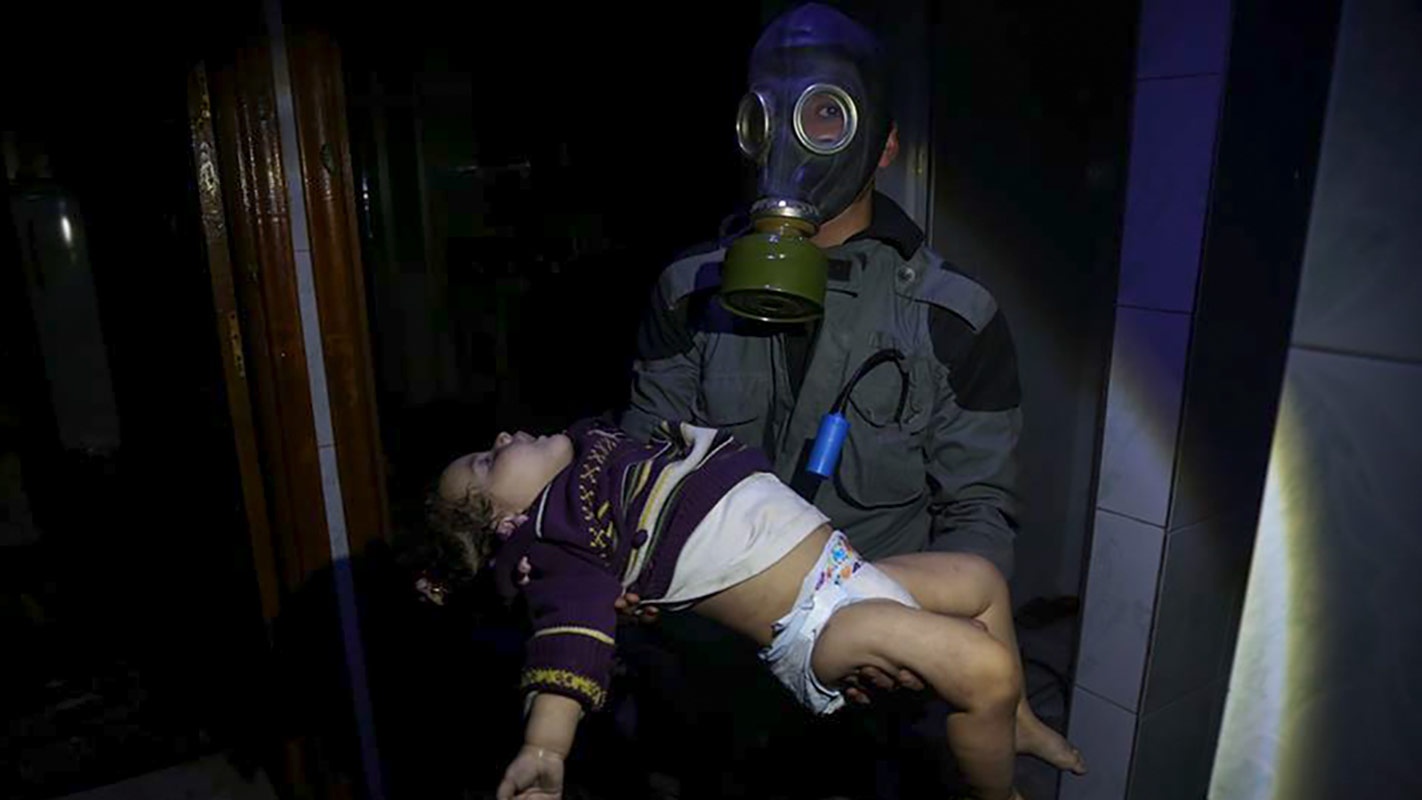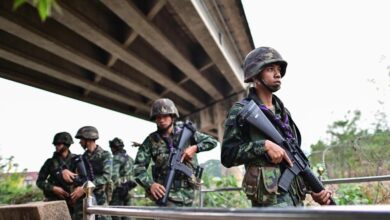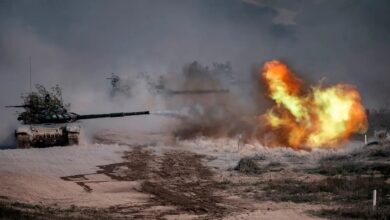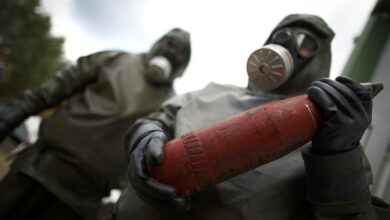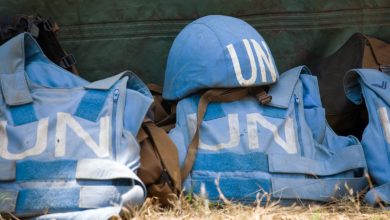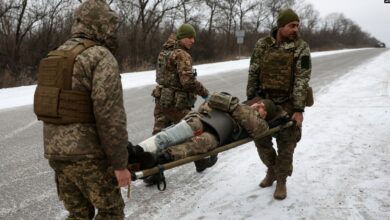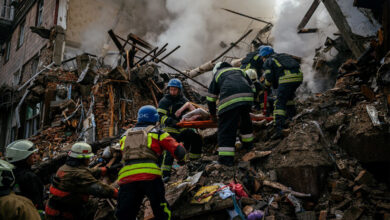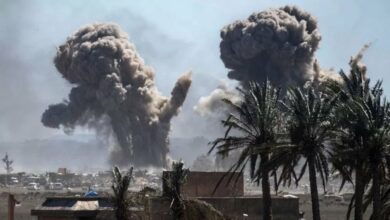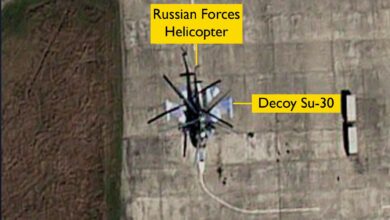No warring party acted to protect civilians in the siege of Syria’s Eastern Ghouta, UN says
Pro-Syria government forces committed crimes against humanity, UN Human Rights Commission report says
Both pro-Syrian government forces attacking Eastern Ghouta and armed groups defending the besieged enclave committed what amounted to war crimes, a United Nations report said.
Additionally, the report said that pro-government forces committed what amounted to crimes against humanity, including deliberately starving civilians.
The Commission of Inquiry, tasked by the U.N. Human Rights Council in March to urgently investigate the recent events in Eastern Ghouta, released a 23-page report on Wednesday, June 20 filled with horrific details of civilian suffering.
The five-year siege of the enclave on the outskirts Damascus ended in April when pro-government forces regained control.
“Following the end of the longest running siege in modern history … the U.N. Commission of Inquiry [for human rights in Syria] has condemned this method of warfare in Syria as barbaric,” the investigators said in a statement, urging “all parties to the conflict in Syria to desist from resorting to sieges in the future, concluding they are characterised by war crimes.”
“Hundreds of thousands of Syrian women, men and children countrywide have suffered for too long the perverse and long-lasting effects of this medieval form of warfare,” the report said.
War crimes committed by both sides
“What is clear from the terminal phase of this siege is that no warring party acted to protect the civilian population,” said Commission Chair Paulo Pinheiro.
As pro-government forces dramatically escalated their campaign to recapture the besieged enclave between February and April this year, they used tactics that were “largely unlawful in nature,” the report said.
The statement noted that during the escalation of the military campaign to recapture the enclave between February and April, pro-government forces carried out aerial and ground bombardments killing hundreds of people, and forcing civilians to hide for months in makeshift basement shelters.
“By April, numerous homes, markets, and hospitals had been all but razed to the ground, amounting to the war crimes of launching indiscriminate attacks, and deliberately attacking protected objects,” the statement said.
“Government forces used multiple-barrel rocket launchers (MBRL) which were either incapable of discriminating between civilian and military-targets in densely populated civilian areas, or deliberately employed to spread terror,” the report said.
Rocket artillery included both the inaccurate MBRL and “makeshift imitations,” it added. “In many cases, bombardments were disconnected from frontline clashes.”
Aerial missions were carried out by both the Syrian Arab Air Force – using Su-22 and Su-24 ground attack aircraft and Mi-8 and Mi-17 helicopters for “barrel bomb” attacks – and the Russian Air Force, which carried out airstrikes with Su-24 and Su-34 aircraft.
On April 7, at least 70 people died in a suspected Syrian government chemical weapons attack in Douma, the last opposition-held down in Eastern Ghouta. The COI is still investigating the incident, but said in the report that “the available evidence is largely consistent with the use of chlorine” although other symptoms reported that day “are more consistent with the use of another chemical agent, most likely a nerve gas.”
The commission also faulted armed Syrian opposition groups like Jaysh al-Islam, Ahrar al-Sham and the al-Qaeda affiliate Hayat Tahrir al-Sham for committing war crimes between February and April by “relentlessly” firing unguided mortars into Damascus city, killing and maiming hundreds of civilians.
Members of Faylaq al-Rahman also used improvised “Omar” cannons, which are by their nature inherently indiscriminate, investigators found.
“In a particularly egregious attack on 20 March, at approximately 6:00 p.m., members of Faylaq ar-Rahman and/or HTS in southern Ghouta launched a mortar which struck the Kashkol neighborhood of Damascus city, located on the edge of Jaramana district. At least 44 civilians were killed, including women and children, and hundreds more injured. The rocket landed in a food market where hundreds of civilians were shopping on Mother’s Day,” the report said.
“…there can be no justification for the indiscriminate shelling of civilian inhabited areas in Damascus,” Commissioner Hanny Megally said. “Such actions by armed groups and members of terrorist organisations also amount to war crimes.”
“Through the entire duration of the siege, armed groups also regularly arbitrarily arrested and tortured civilians in Douma, including members of religious minority groups, repeatedly committing the war crimes of cruel treatment and torture, and outrages upon personal dignity,” the report said.
Crimes against humanity
“It is completely abhorrent that besieged civilians were indiscriminately attacked, and systematically denied food and medicine,” Pinheiro said in the statement.
The tactics, the report said, “aimed at punishing the inhabitants of eastern Ghouta and forcing the population, collectively, to surrender or starve.”
“Certain acts perpetrated by pro-Government forces during the siege laid to Eastern Ghouta, including the deliberate starvation of the civilian population as a method of warfare, amount to the crime against humanity of inhumane acts causing serious mental and physical suffering,” the report addd.
The investigators slammed the widespread use of sieges throughout Syria’s seven-year conflict, which has killed more than 350,000 people.
Mass displacement of civilians
The report says that around 140,000 people were displaced from Eastern Ghouta by April 14 when government forces declared the enclave recaptured. It says tens of thousands of of those displaced people are being unlawfully interned by government forces in rural Damascus.
“In many instances, the on-going internment of these individuals amounts to arbitrary deprivation of liberty, and the unlawful confinement of tens of thousands,” said Commissioner Karen Koning AbuZayd.
The report also noted that up to 50,000 civilians from Eastern Ghouta were displaced to Idlib and Aleppo governorates under local “evacuation agreements.”
Repeated allegations of war crimes
The U.N.’s Syria commission, set up in 2011 shortly after the civil war began, has repeatedly accused the warring parties of crimes.
The investigators, who have never been granted access to Syria, said they based their findings for their latest report on some 140 interviews conducted in person in the region and from Geneva.
They also said they analysed photographs, video recordings, satellite imagery, and medical records, as well as reports from government and non-government sources.
With reporting from AFP

